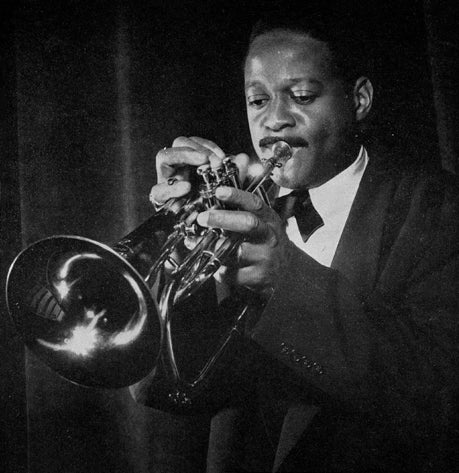Clark Terry

Born in 1920 in St. Louis, Missouri, Clark Terry began playing the trumpet as a teenager and began his career in the early 1940s in his hometown. There he rubbed shoulders with the young Miles Davis, who idolized him and with whom he formed a strong friendship.
After playing in the US Navy band during the Second World War, he joined Charlie Barnet's big band, one of the first conductors to hire black artists. It was during this period that he made his first recordings with singer and saxophonist Eddie Vinson. His career took off in 1948, when he joined Count Basie's band, where he stayed for three years, and even more so in 1951 when he joined Duke Ellington's band. He will qualify later his years with Basie as "college" years before joining "the university" with Ellington. He wrote and arranged some texts for Ellington and recorded several albums under his name, including Daylight Express (1957) and Orbit (1958).
After eight years as Duke Ellington's star trumpet player, he left his orchestra in 1959 for Quincy Jones'. The following year, he became the first African-American to play for NBC, notably in The Tonight Show Band. In addition to his intense studio activity, Terry Clark toured with Sarah Vaughan, J.J. Johnson, Ella Fitzgerald, Dizzy Gillespie and others, and then with his own groups starting in 1966. Curious about everything, he explored different styles and instruments: the piccolo trumpet, the pocket cornet, the Vari-Tone, and the flügelhorn which he adopted as his main instrument in the 1970s. He is also famous for his mumbles, vocal phrases mumbled in an almost parodic manner.
Clark Terry also invested a lot in the transmission to young people by giving master classes in schools, colleges and universities. Clark Terry, who died in 2015 at the age of 94, was Chevalier dans l'ordre des Arts et des Lettres (Knight in the Order of Arts and Letters) and a recipient of a Grammy Award for lifetime achievement.
Photo credit: Brian McMillen
